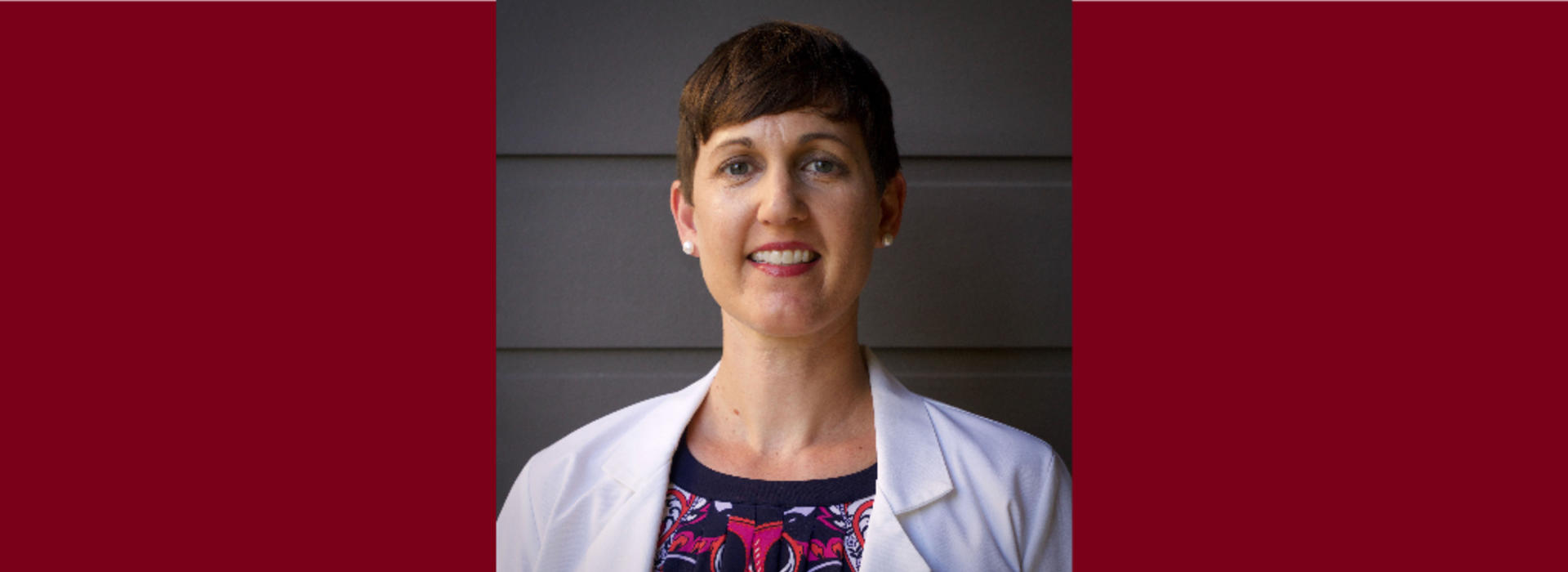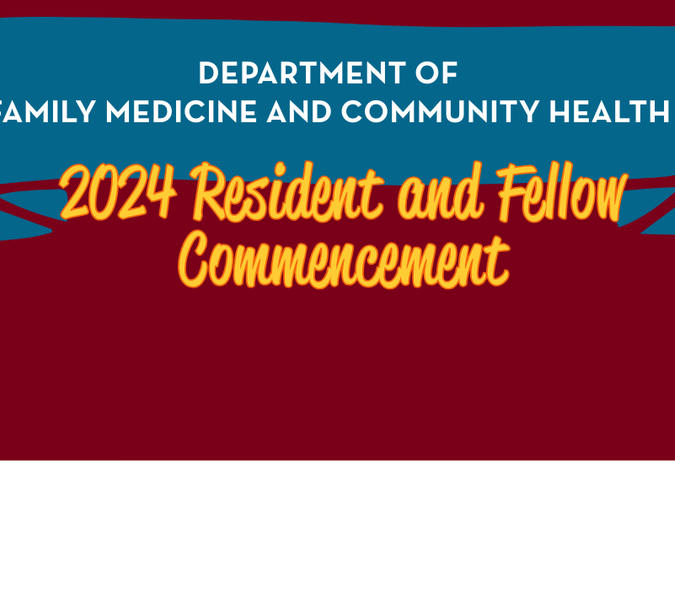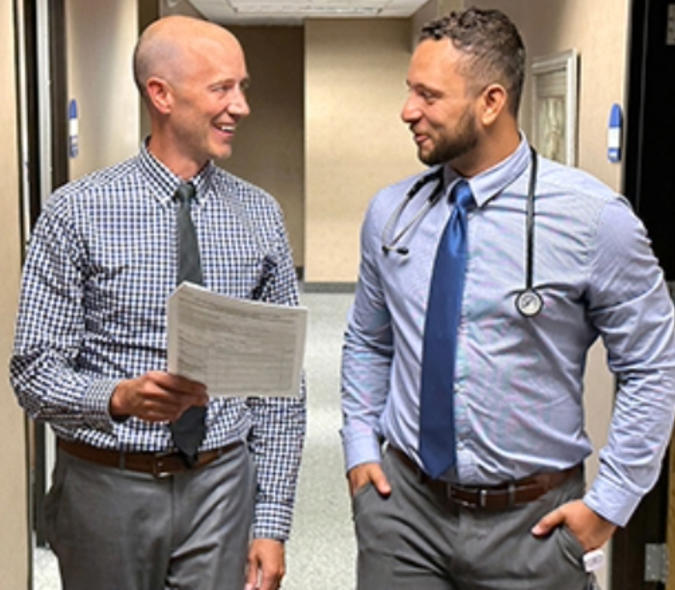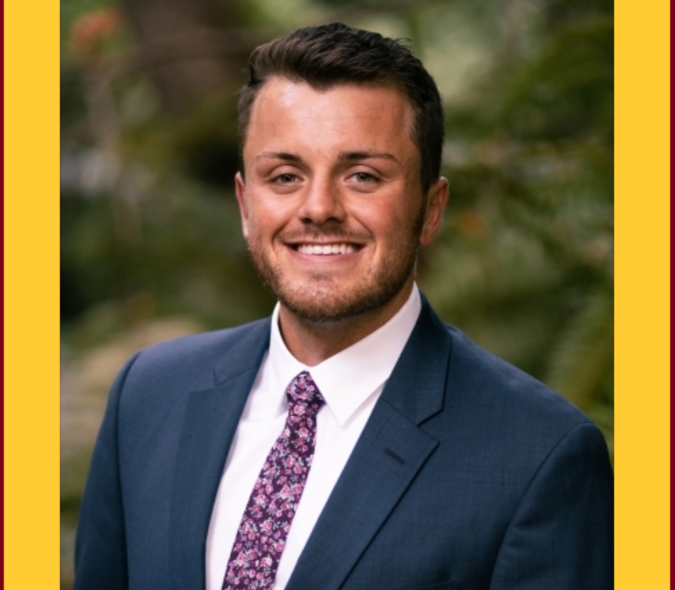
Dr. Julie Amaon’s Mission to Expand Access to Reproductive Healthcare
Julie Amaon, MD, is a University of Minnesota Medical Center Family Medicine Residency Program alum and the medical director for the successful startup Just the Pill. Since she graduated in 2020 and joined the organization, Dr. Amaon has been working to expand access to reproductive health services.
Can you tell us about your mission as a family medicine physician?
I went back to school late in life to become a physician. For a long time, I had worked at Planned Parenthood and managed a clinic in Austin, Texas, and I was struck by how few providers there were in my state. They were flying physicians in from the coasts to fill the gap. So I went back to school knowing that I wanted to provide abortion care.
There are lots of different ways I could do that and lots of different specialties. In medical school, I fell in love with family medicine. I love the idea of taking care of people cradle-to-grave. My idealistic, grand plan was to provide medical care in all its forms in my home state of Texas. I wanted to care for patients and their kids, provide abortion care if that's what was needed, give flu vaccines—the full span of medical care from reproductive years into old age. I found the training I wanted at the University of Minnesota Medical Center Family Medicine Residency Program (also known as Smiley’s), which offered training in abortion care.
After graduation, I found myself doing very different things. These days I'm siloed in abortion care because of the world that we live in. In 2020, I was planning on providing primary care at a clinic in Austin, and then COVID hit. Nobody was hiring. It was scary to possibly come out of that long stint of training and not have a job. But I got introduced to the executive director who started Just the Pill, and it's been amazing to be involved in that startup company from the ground up.
How did Just the Pill come about?
Right right after COVID hit in 2020, Just the Pill’s executive director was looking at how all of our abortion clinics in Minnesota, are disproportionately urban-based. Many exist in cities like Rochester and Duluth, along with the Twin Cities. But Minnesota is a large state, and people in rural areas struggled to access abortion care. There weren’t a lot of clinics around.
Even though one of Smiley’s goals is to produce more physicians who will go into rural areas and offer family medicine services, including all forms of reproductive healthcare, a shortfall remains. Abortion care has been pretty siloed in abortion clinics. Just the Pill’s executive director identified the organization’s mission: Reach people who are falling through the cracks and innovate using technology to make the process more streamlined. Help those who face limitations like needing to travel long distances or being unable to take time off work. Her idea was to bring mobile clinics to rural areas.
In July 2020, the federal district court in Maryland allowed practitioners to mail medication abortion pills. Since COVID had just begun, we were trying to limit people coming into clinics and exposing one another to the virus. We quickly pivoted and started mailing medication abortion pills in October 2020.
Now that you are the medical director of Just the Pill, what is your ultimate goal?
My ultimate goal is to integrate abortion care into family medicine. It's fundamentally part of general health care, but that's not the world that we live in right now. There have always been restrictions on abortion healthcare, but now, in the face of Roe v. Wade‘s being overturned, our mission is to figure out how to continue providing this needed care to patients.
I've always been very passionate about sexual and reproductive health. Our work at Just the Pill focuses on expanding access and making it easier for patients to get the care that they need. We started off mailing medication, and we have mobile clinics now. We started in Minnesota and expanded to Montana, Wyoming, and most recently Colorado.
Some people see us as the first company in the United States to mail medication abortions via telehealth and offer the country’s first mobile clinics. But that's not really how we see ourselves. We see ourselves as innovators in this space. Abortion care was done in the same way for the last 20 years or so, and we're looking at how we can change that. We want to make it easier and more affordable for patients and try to break down those barriers for people to get the care they need.
Can you tell us more about the obstacles you face and how you’re working to overcome them?
Obviously, there have been lots of obstacles. Even before the Supreme Court decision, we knew that Roe was just a skeleton. It never provided the access that people needed. It always mattered where you lived and what your income was. To counter those limitations, we have built an amazing team of 28 people from all walks of life, all experience levels. Many have worked in abortion care or practical support. All bring creative ideas about how we can stay within the law while helping people get the care that they need.
We've tried to work on helping with payment for abortion care. The Hyde Amendment doesn't allow Medicaid to cover the service, but Minnesota is one of the states that has expanded Medicaid to provide coverage for abortion care. Yet payment is still complicated and remains a barrier. At Just the Pill, we have an internal fund available, as well as multiple other state/region-specific funds that we work with, to help cover payment for services as well as practical support.
Another obstacle is adapting to rapidly changing laws in each state stemming from the Supreme Court’s Roe v. Wade decision in June. We work with an amazing group of pro bono lawyers from Dorsey and Whitney who help us stay up-to-date on what is changing and when.
How has Just the Pill evolved and innovated to adjust to these challenges?
This past August in Colorado we piloted a mobile clinic to make it easier for people to access abortion medication pills. People can come into the state and have their telehealth visit. We then drive a van and try to get as close as possible for patients so they can pick up their medications and receive the care that they need.
We have plans for a second mobile clinic with which we are hoping to provide procedures. That's been more difficult to find a space to park safely for the same reasons that brick-and-mortar clinics face: protesters, threats of arson and bomb attacks, all those things. That's not up and running yet, but we do have the mobile clinic in Colorado, and we're hoping to expand in Minnesota soon with our mobile clinics.
As a family medicine physician, you serve a vital function in health care. How does your work with Just the Pill help fulfill that mission?
I would love to get to a point in my career where I could offer family medicine care along with abortion care, which is inherently part of sexual and reproductive health. I believe I am fulfilling the mission by filling a void in healthcare, which is offering medical abortion services in innovative ways.
For myself and others like me, we are grounding ourselves in what SisterSong defines as reproductive justice: “The human right to maintain personal bodily autonomy, have children, not have children, and parent the children we have in safe and sustainable communities.”
I couldn't imagine doing anything other than what I'm doing right now. It's been pretty inspiring.
How did your residency at University of Minnesota Medical Center Family Medicine Residency Program, also called Smiley’s, help prepare you for your career?
I would not be here without them. They're amazing, and I love that group of people. I had awesome mentors like Drs. Nicole Chaisson, Karen Borchert, and Kara Pacala. Program directors Dr. Pita Adam (former) and Dr. Tim Ramer (current) were also wonderful sounding boards as well as Dr. Carrie Link. They all gave me and so many others the freedom to provide full-spectrum care—whatever that means for each of us.



